Located in the north-central part of the peninsula, the Cameron Highlands are still a haven of peace and fresh air on any trip to Malaysia. They are at an altitude of between 1,100 and 1,600 meters, which, as well as being the perfect destination to take refuge from the stifling sun of the rest of the country, makes them an ideal place for tea plantations.
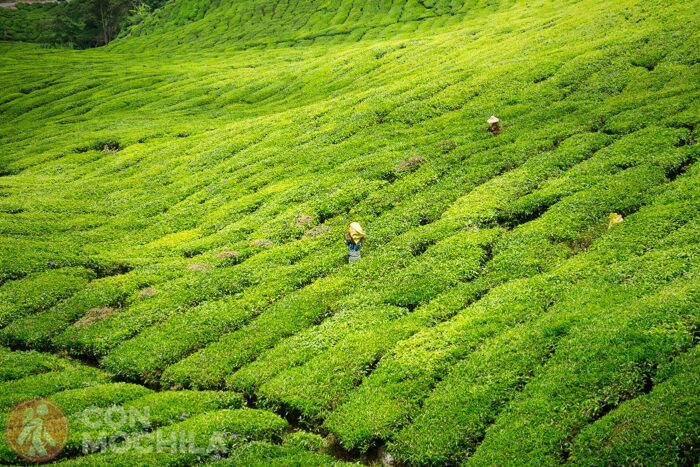
In recent years the landscape has changed a lot, mainly due to the influx of local tourism as people flee the high temperatures. However, despite some modern buildings and recent constructions that seem out of place, the atmosphere remains peaceful- for now…
Although during our travels through India and Sri Lanka we saw tea plantations on several occasions (Darjeeling, Ooty and Munnar, Nuwara Eliya…) and we had no particular interest in seeing the same landscapes again, the idea of spending a few days in slightly cooler temperatures appealed to us, and so we decided to go.
We decided to stay in Tanah Rata, a small town where the bus station, most of the restaurants, and a few massage places were all found in the main street. It is not unusual to go out for a walk and see the street full of locals and tourists when they are not out on one of the many excursions available.
And in the Cameron Highlands one can stay entertained for many days.
The first thing you can do once you arrive in this area of Malaysia is to go out and explore the jungle around Tanah Rata. There are many hiking routes in Cameron Highlands and the owners of the guesthouses, or the walls of the guesthouses themselves filled with murals, will make sure you learn about them and will describe in detail which paths to follow so you don’t get lost.
There are about 11 routes in total and we finally chose number 10. I don’t remember exactly why, but knowing us, I’m sure someone told us that it wasn’t excessively complicated or long.
We left mid-morning after breakfast and it wasn’t too difficult to find the start of the trail following the directions we had been given beforehand. After passing through some gardens, we entered the jungle.
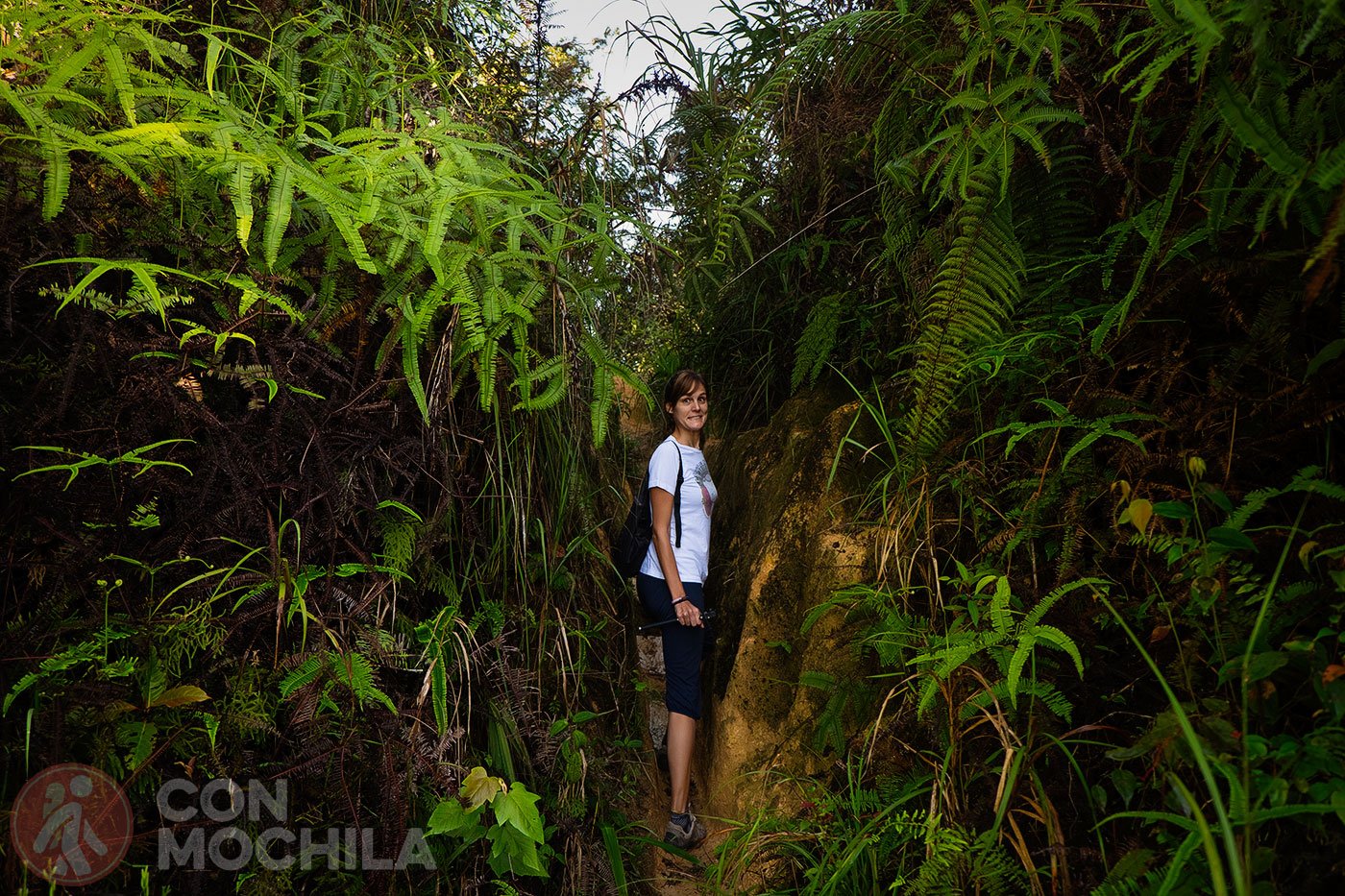
It is impressive to see how after walking just a few metres you get the feeling of being in the middle of the jungle, as the density of the vegetation prevents you from seeing anything beyond a few kilometres. We started walking along a well-signposted path that was not too difficult to follow, except for a few steep climbs that left us breathless and some sections that had been damaged by the storm.
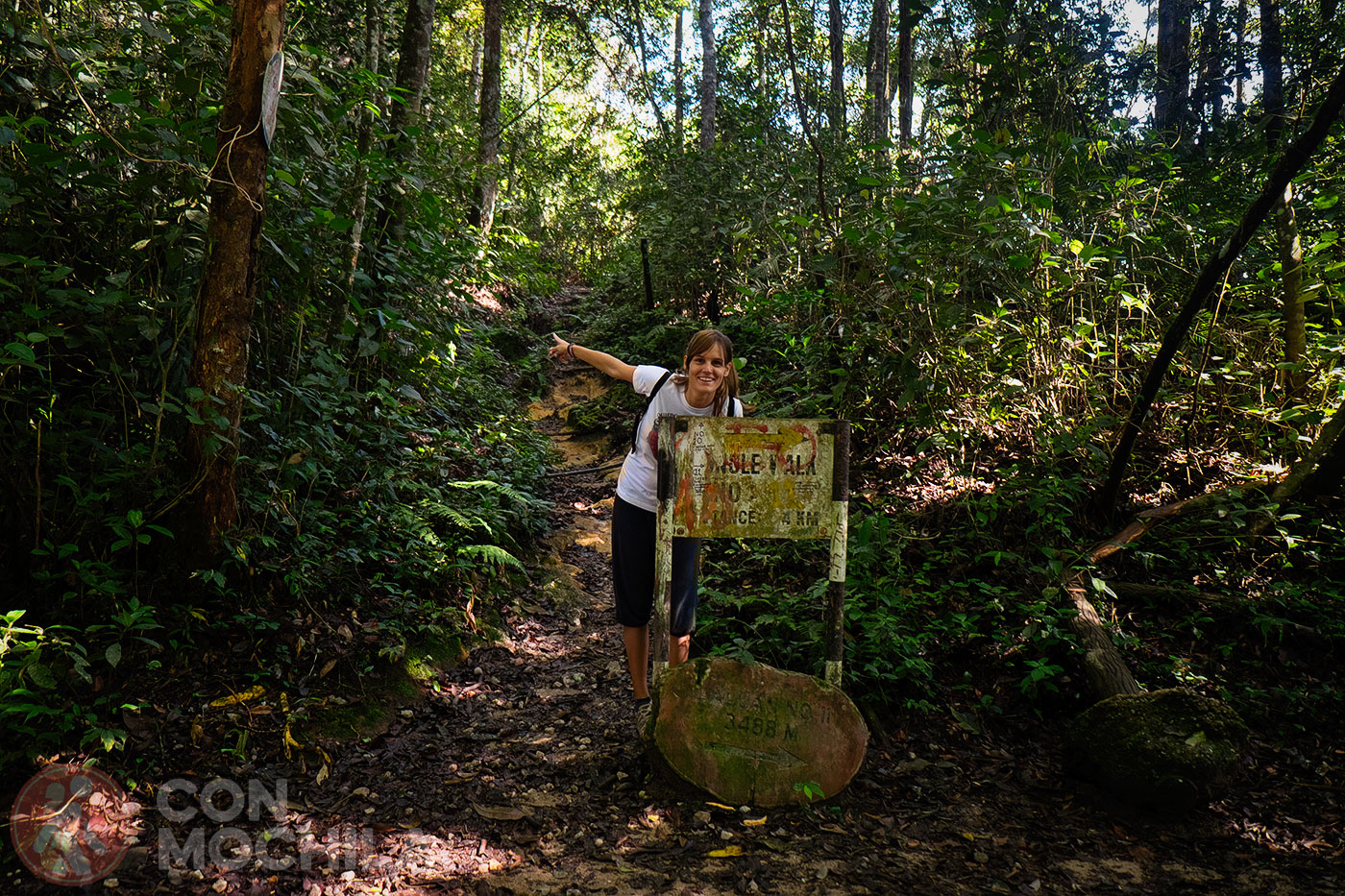
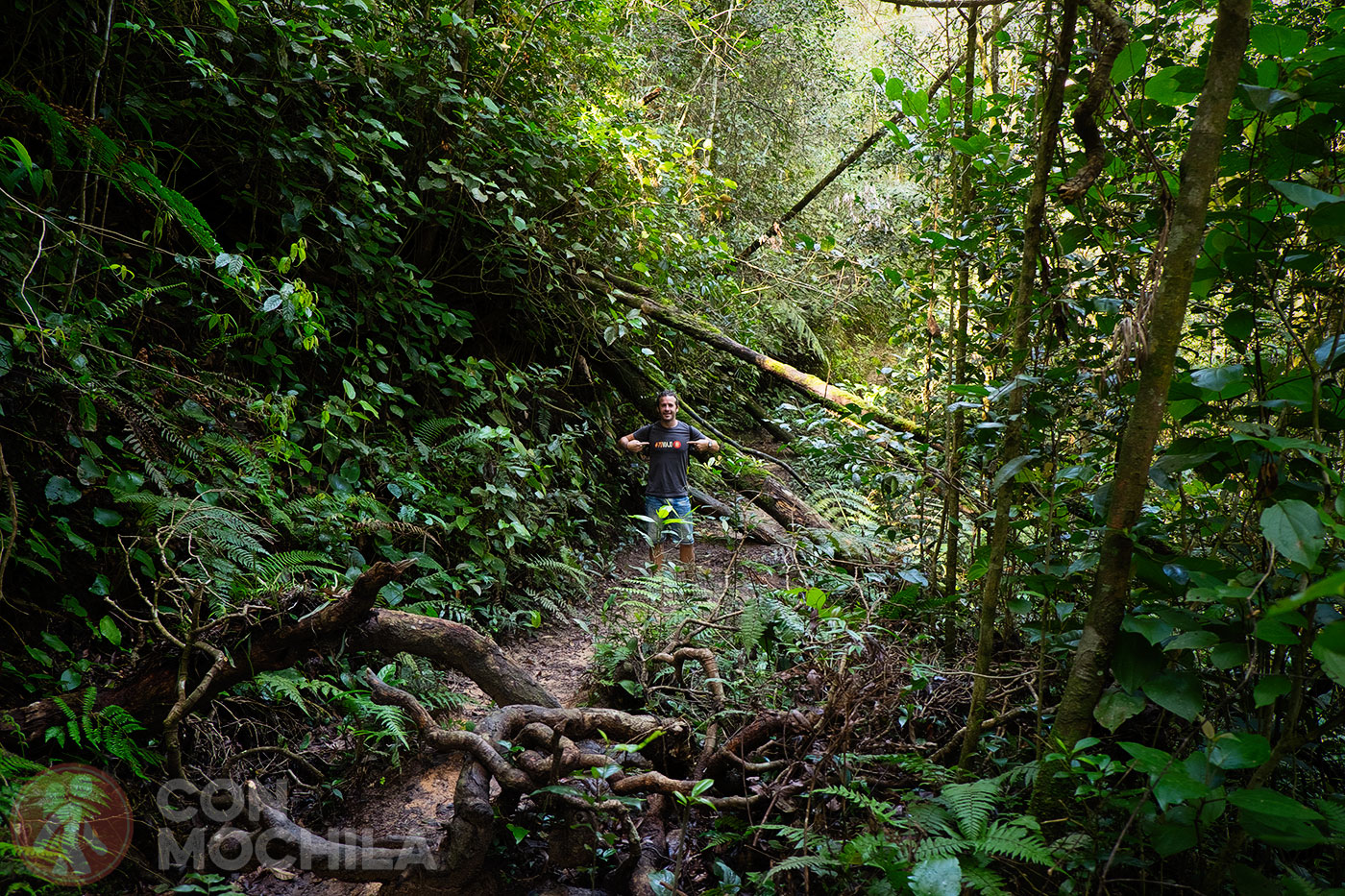
The landscape, which reminded us a lot of Penang National Park, was beautiful; wherever you looked you could see infinite shades of green, which kept us distracted for much of the time with the cameras and the shots. The animals, if there were any, did not come close, only the gigantic ants that occasionally made an appearance in the middle of the path and the annoying mosquitoes kept us company.
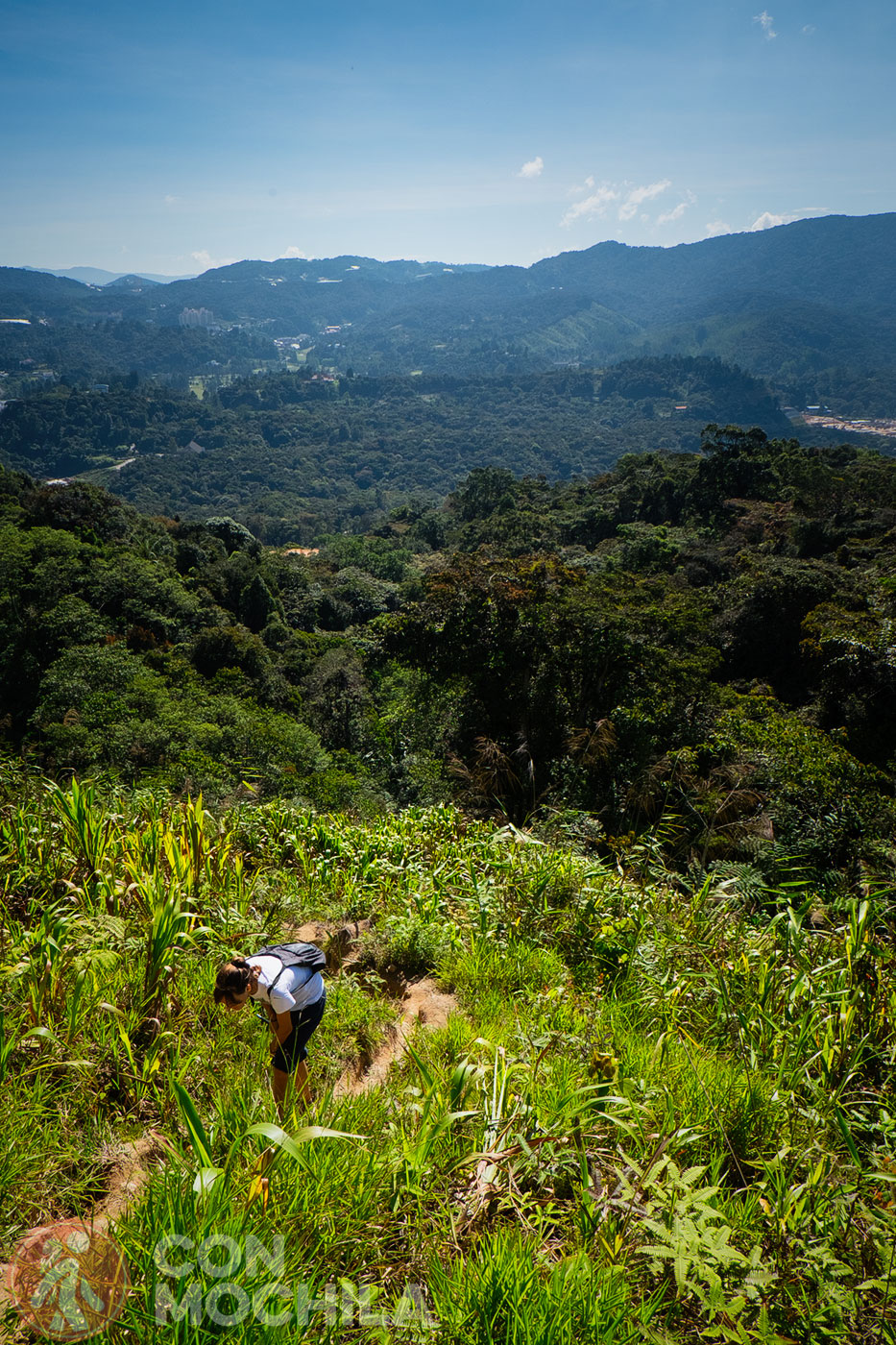
A little over an hour later we reached the highest part where there was an electricity pylon, and just as we had seen on the map, we went underneath and came out on the other side.
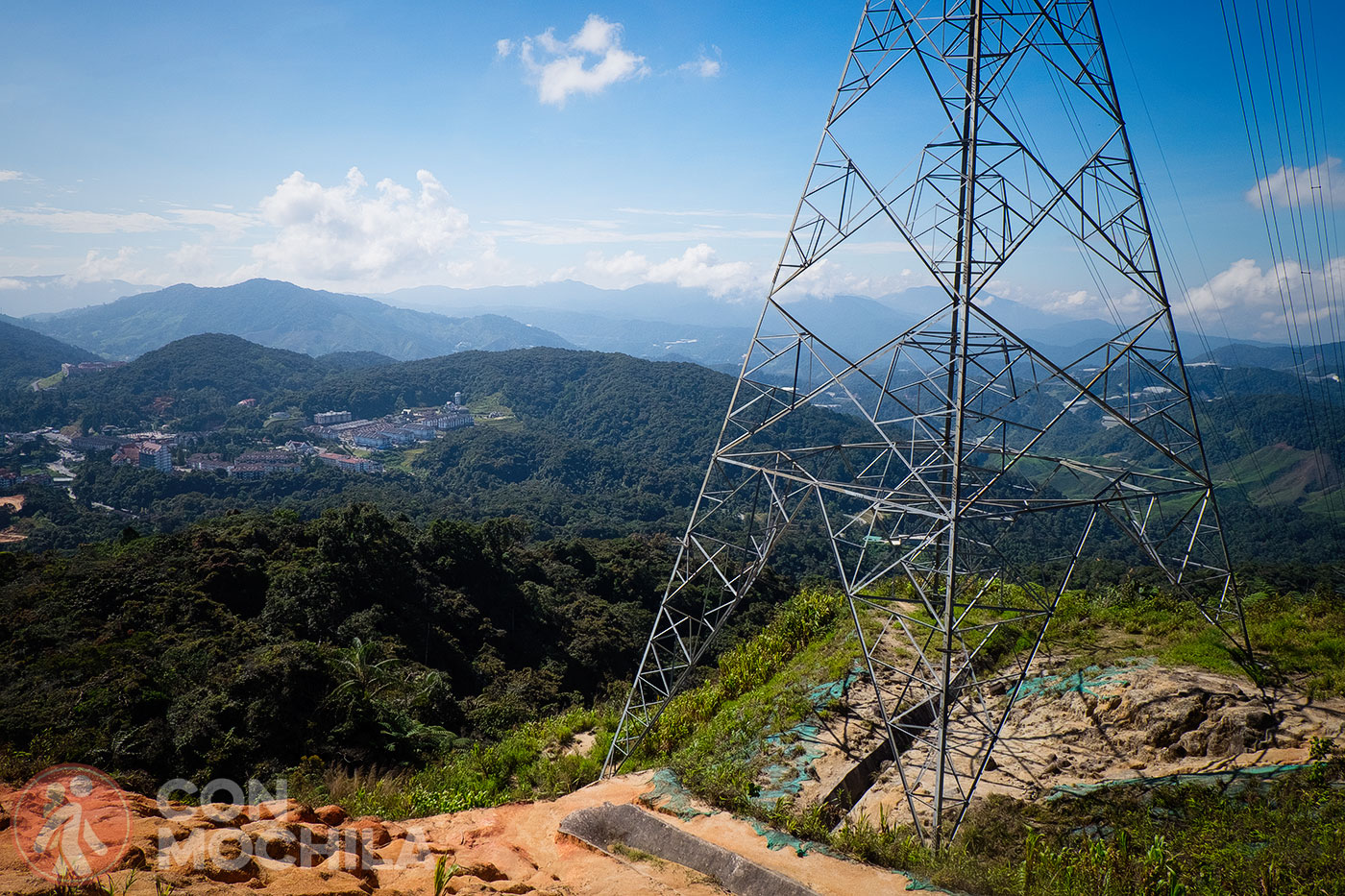
Going down was not much easier because the rains of the last few days had made the muddy path dangerously slippery and we were on the verge of stumbling and hurting our ankles.
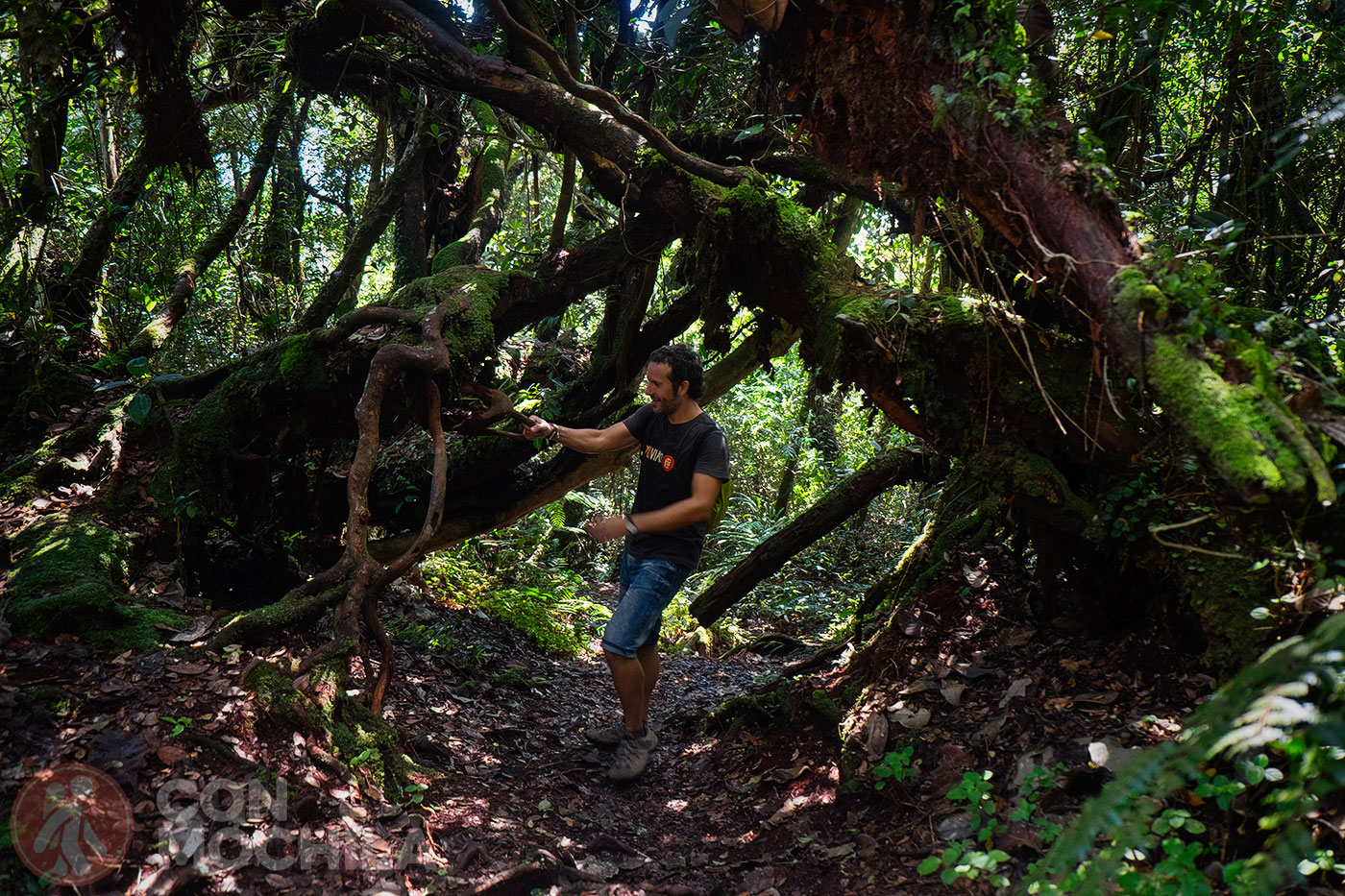
Some sections, with a very thick layer of fallen leaves, moved so much when you put your feet on them that it felt like you were walking on a trampoline.
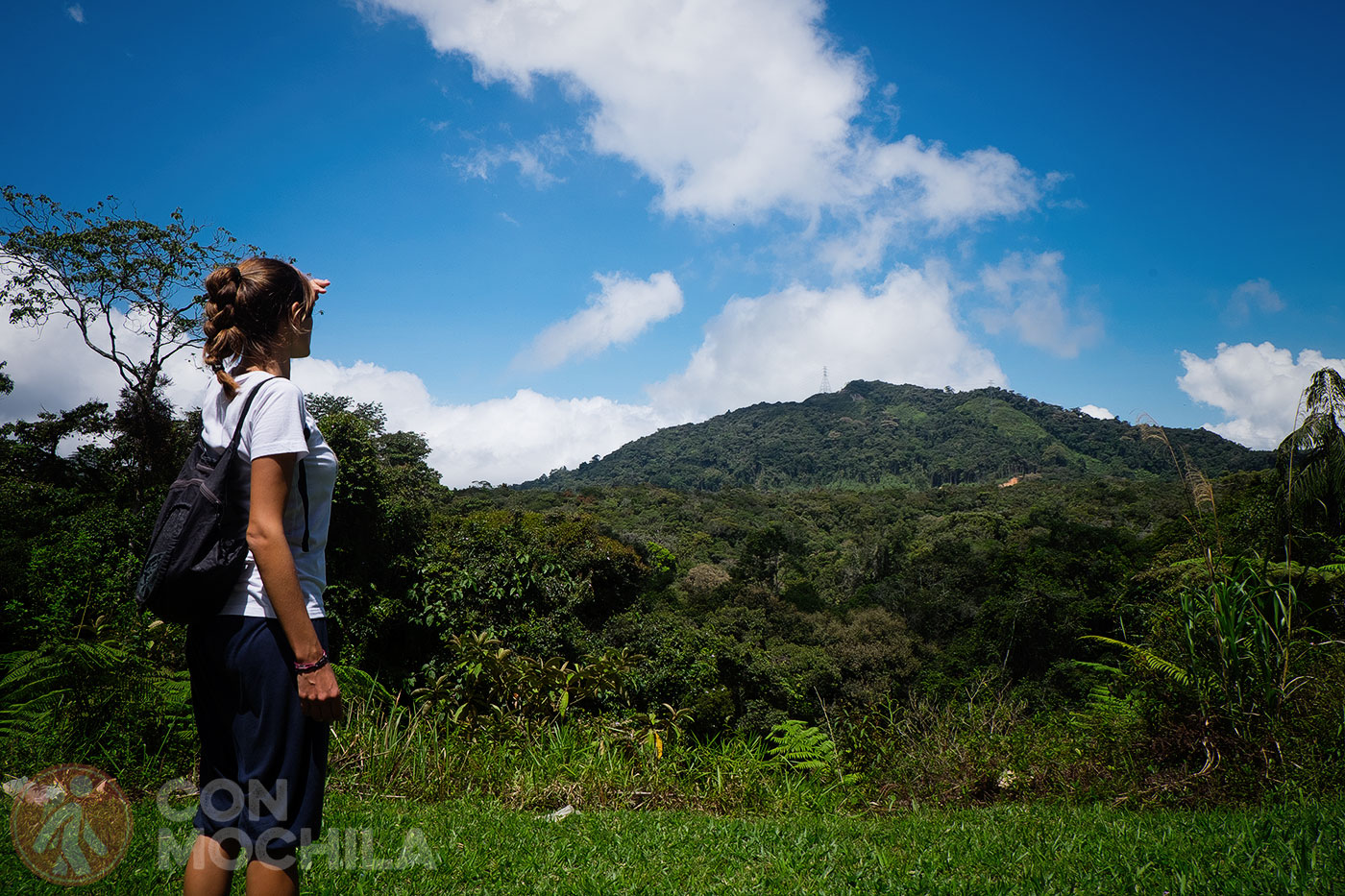
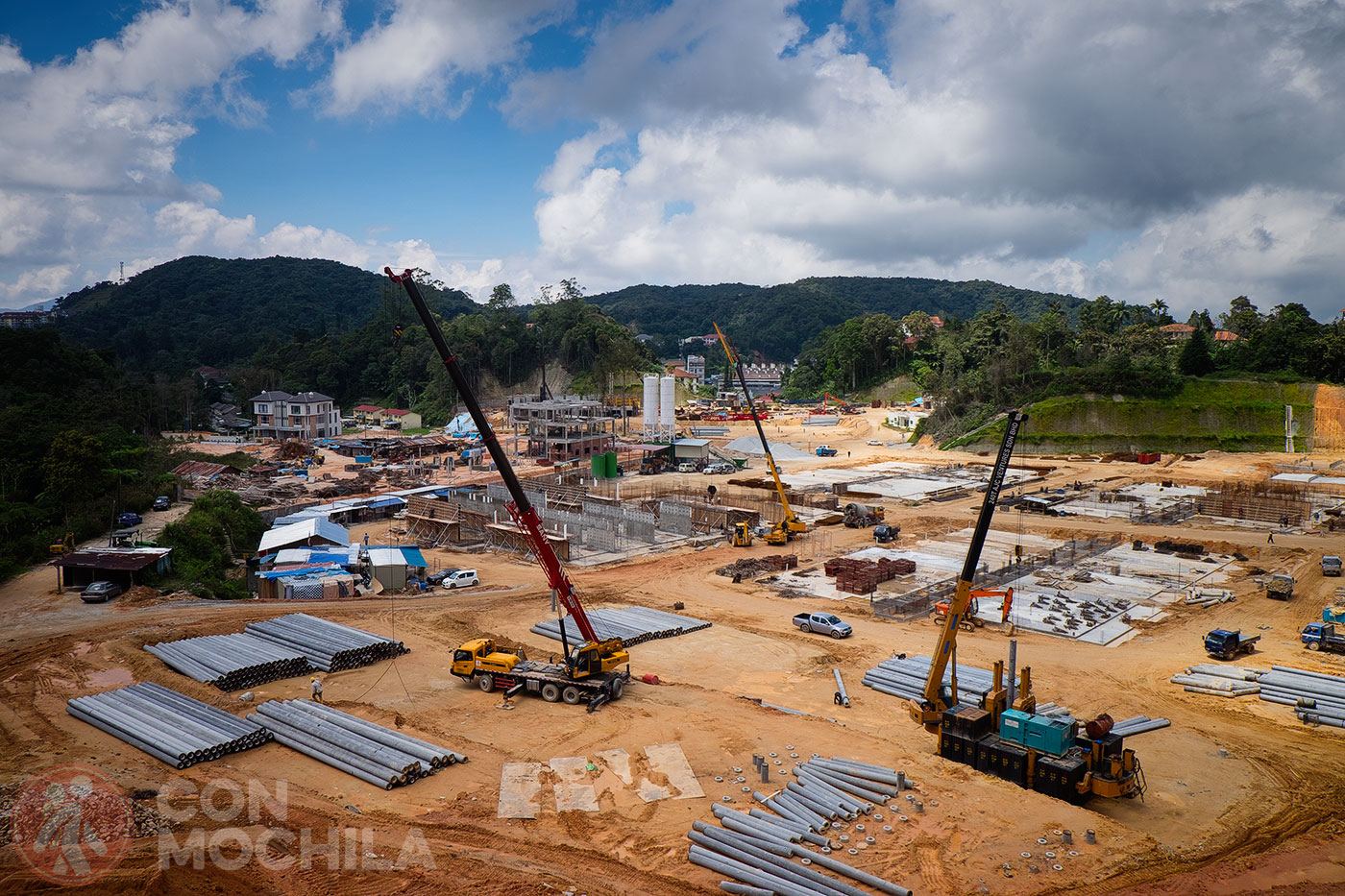
In total, we spent around three hours walking, during which the rain, which threatened to make an appearance on occasion with four drops, did not bother us. We were grateful to be able to stretch our legs, to have enjoyed the landscape and, above all, to not have died of heat in the attempt.
The next day you can choose to see some of the famous tea plantations of Cameron Highlands and from among the various sites we chose the popular BOH, north of Tanah Ratah.
To get there you can do it on your own and as always that means going by public transport, in this case the bus (or there is always the option of hitchhiking), or you can take a taxi or on one of the tours that are organized in the area.
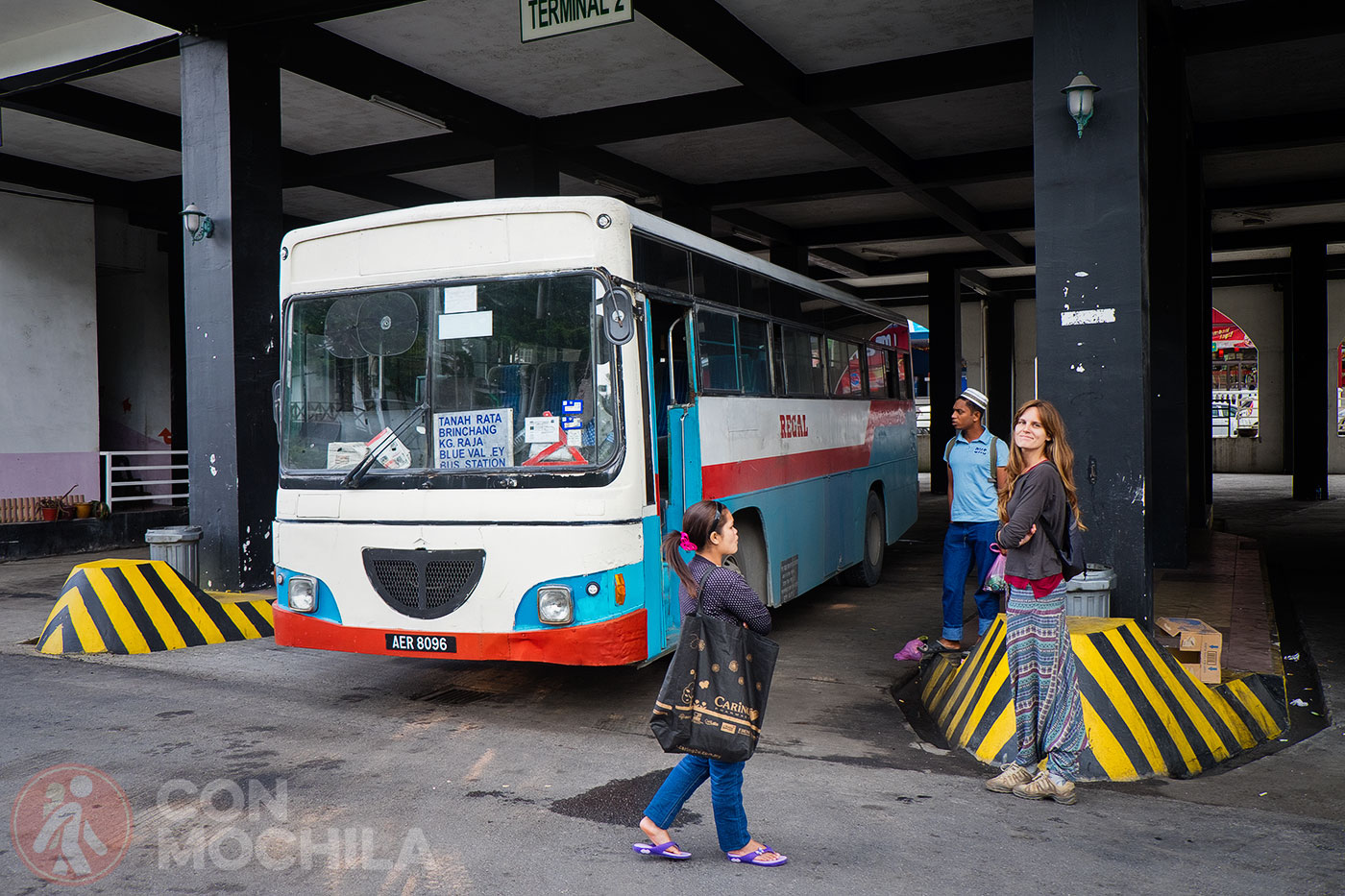
When the bus dropped us off on the main road we turned onto a smaller road and suddenly found ourselves in the middle of the tea plantations.
The stretch to the factory was a bit long, if I remember correctly it was about three kilometres, but we preferred to walk rather than hitchhike because that way we could see the landscape in peace. Also, almost the entire way was downhill.
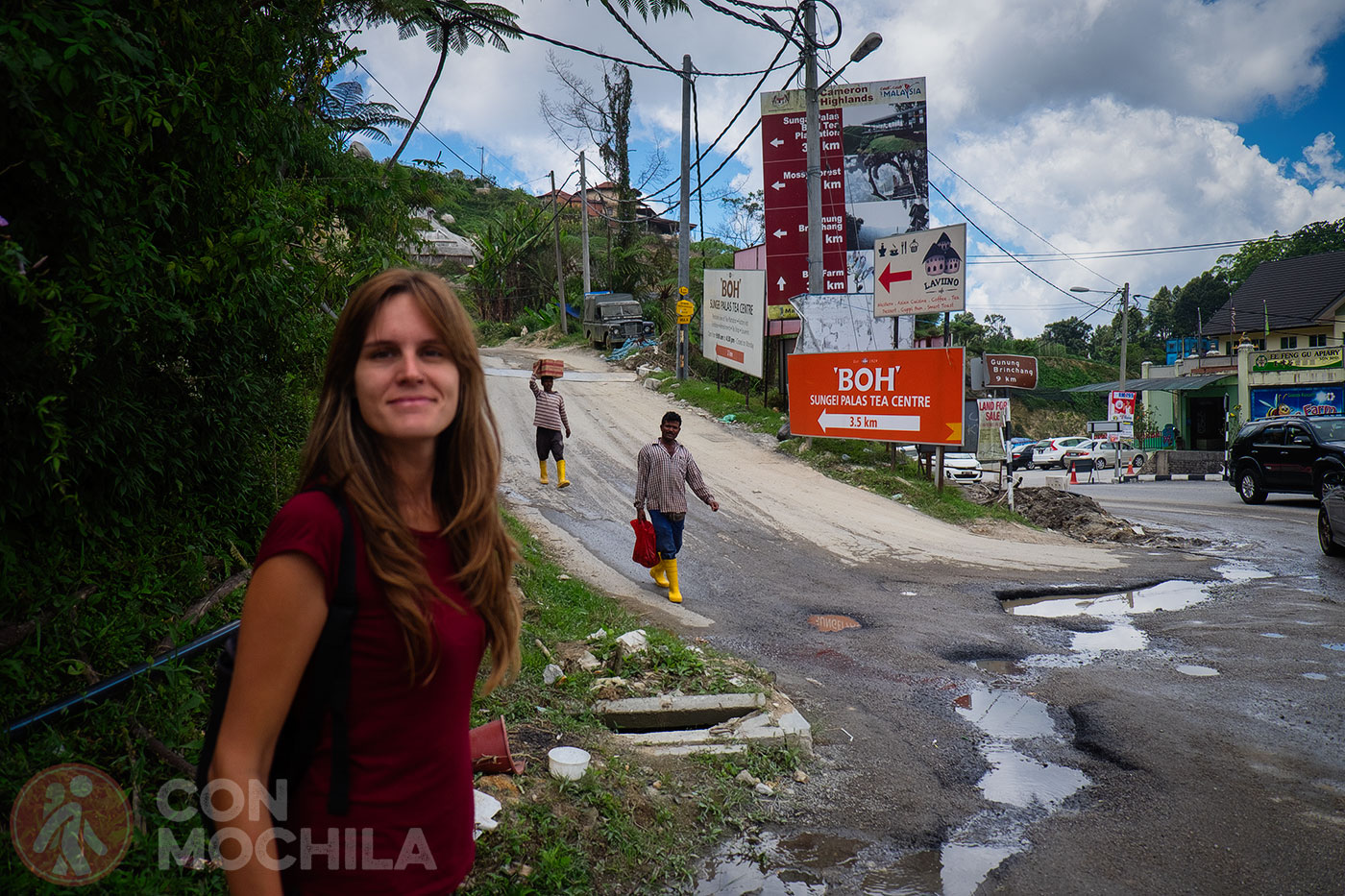
Just as we imagined, the place reminded us tremendously of the plantations we had already seen in India and Sri Lanka, but that was no excuse for Toni not to stop at every bend to take dozens of photos.
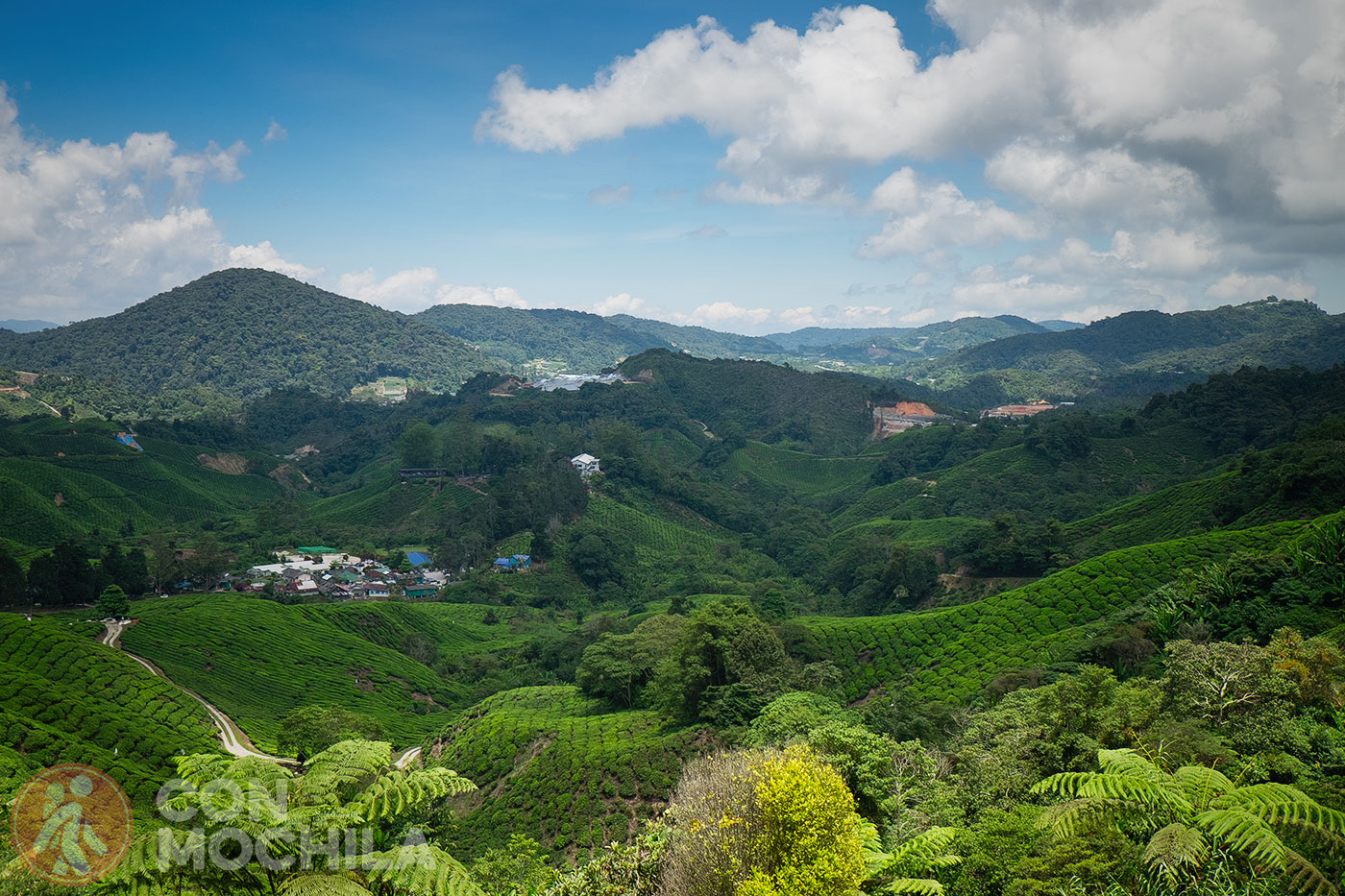
As far as the eye could see there were tea plantations. The varied landscape of the previous day was in stark contrast to the uniformity of what we now had before us; thousands of bushes no more than a metre high formed that monotonous landscape, and in between, there were paths for some of the workers carrying the tea to pass through.
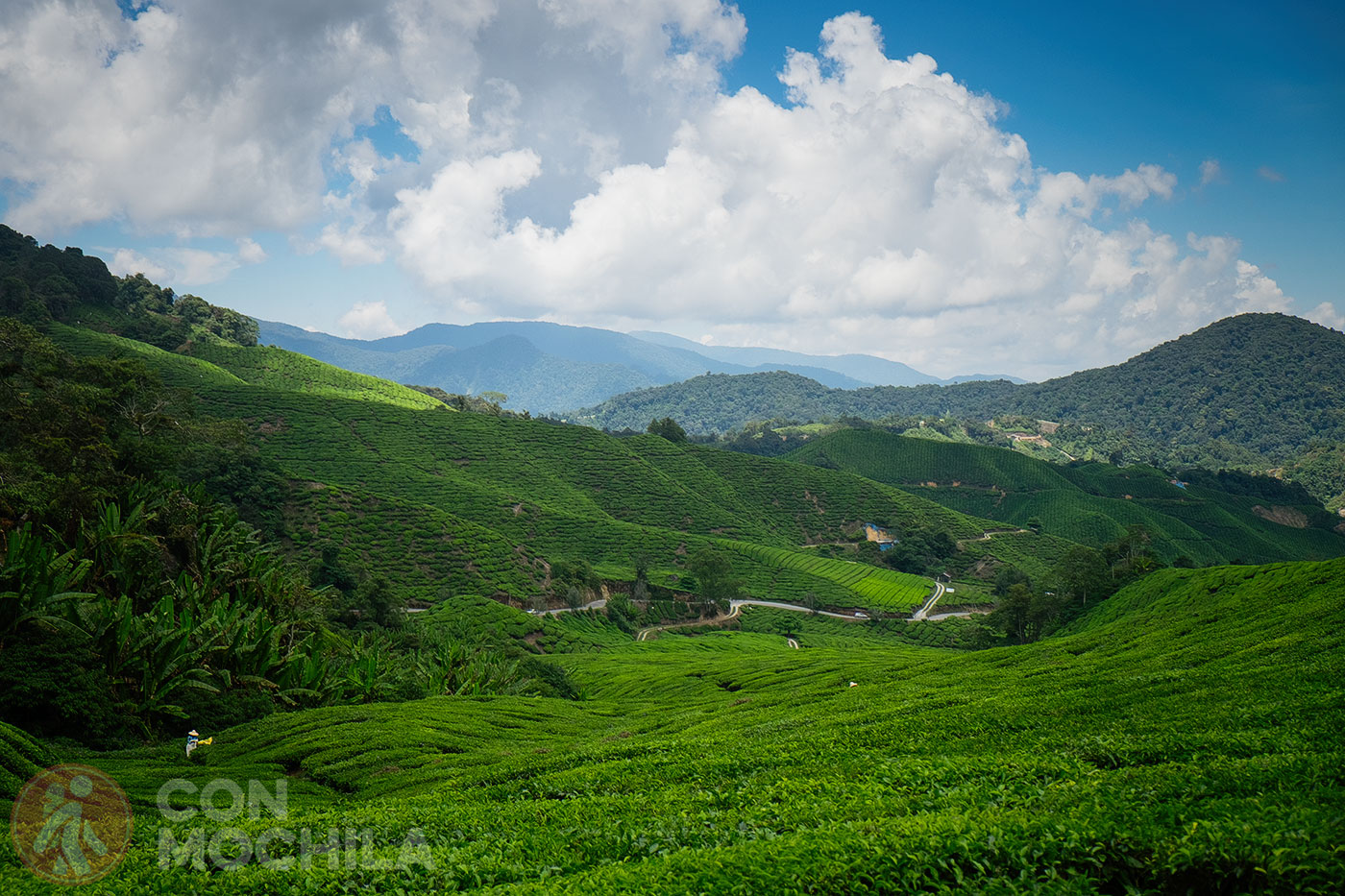
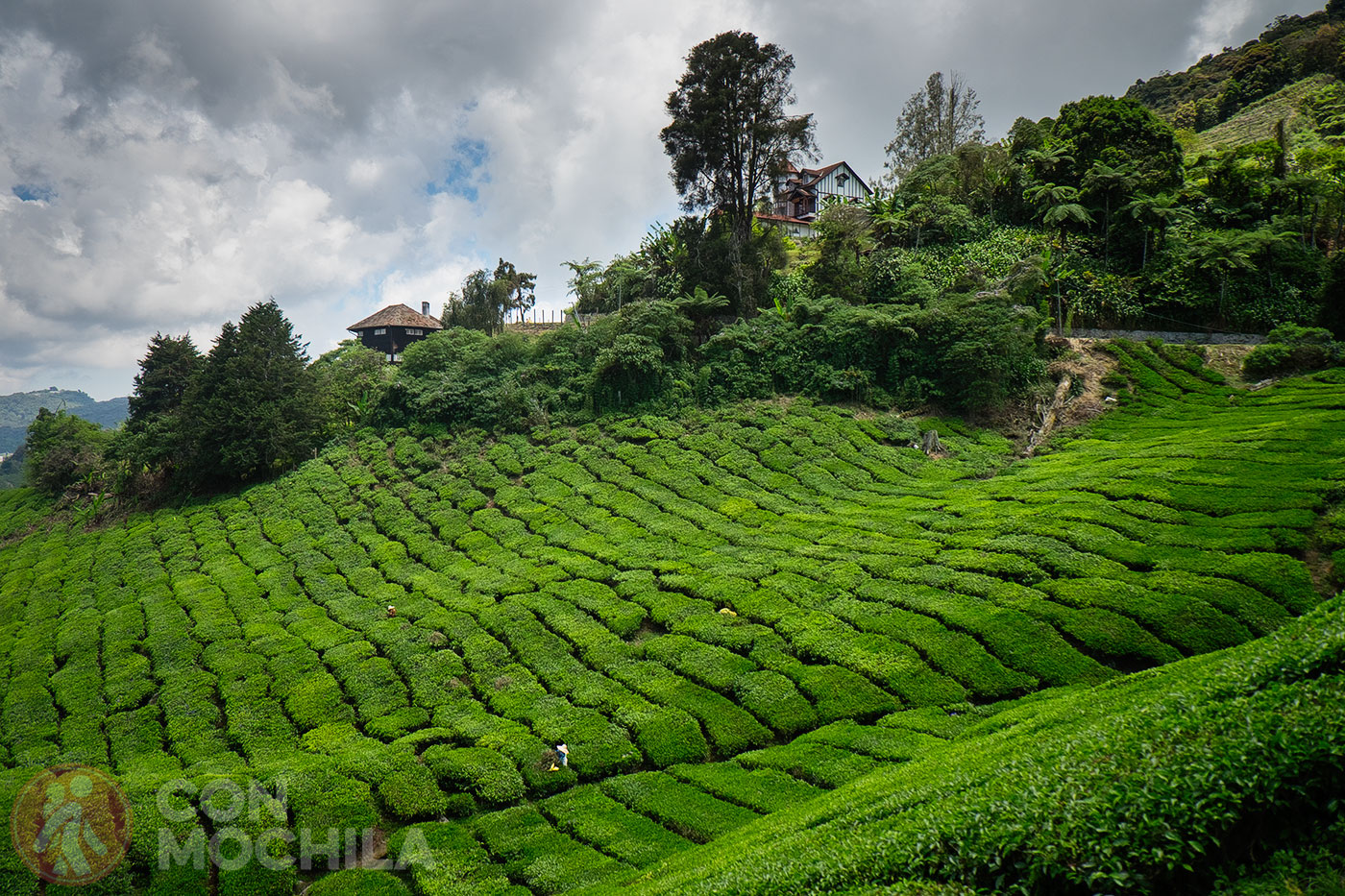
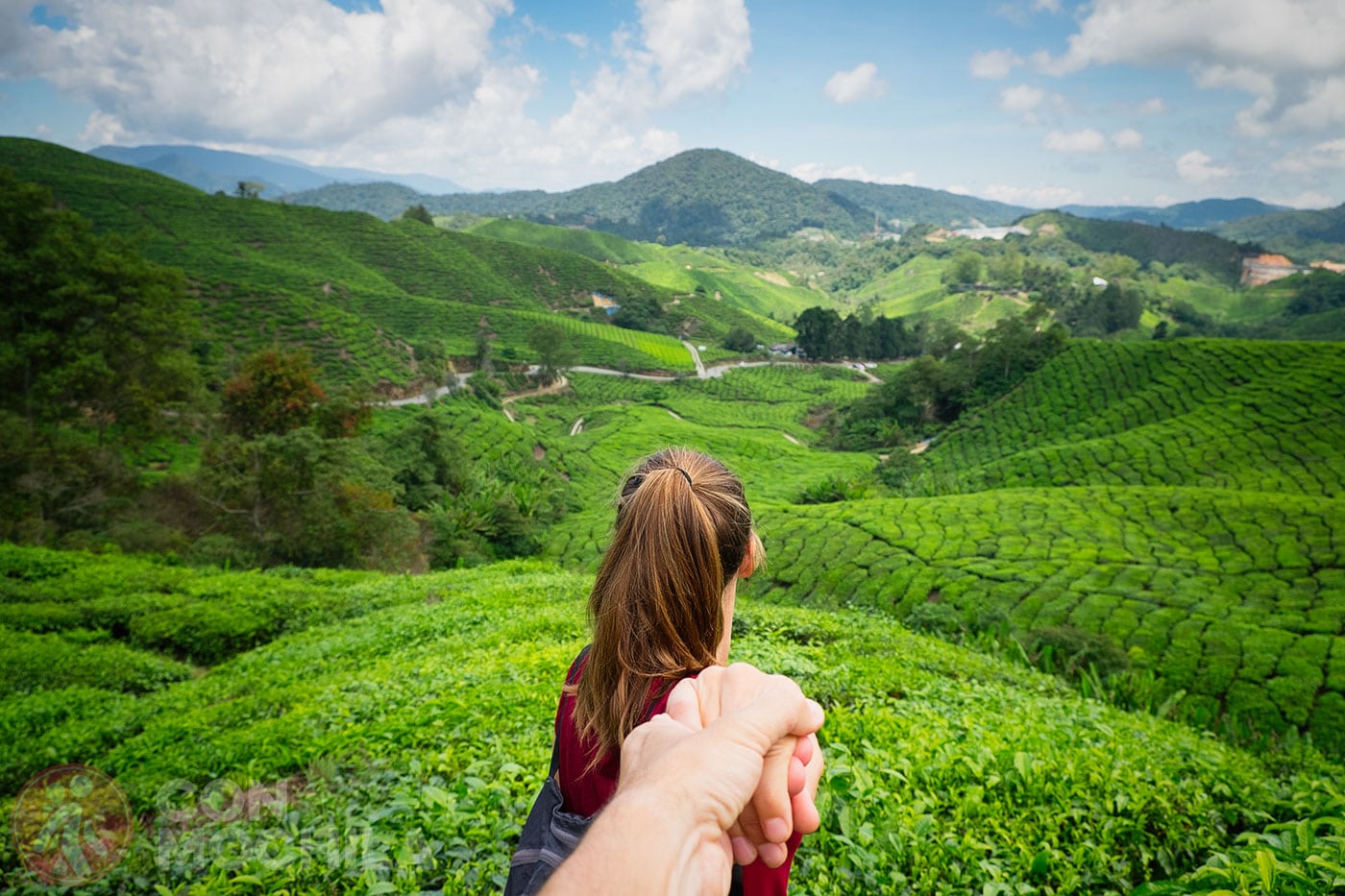
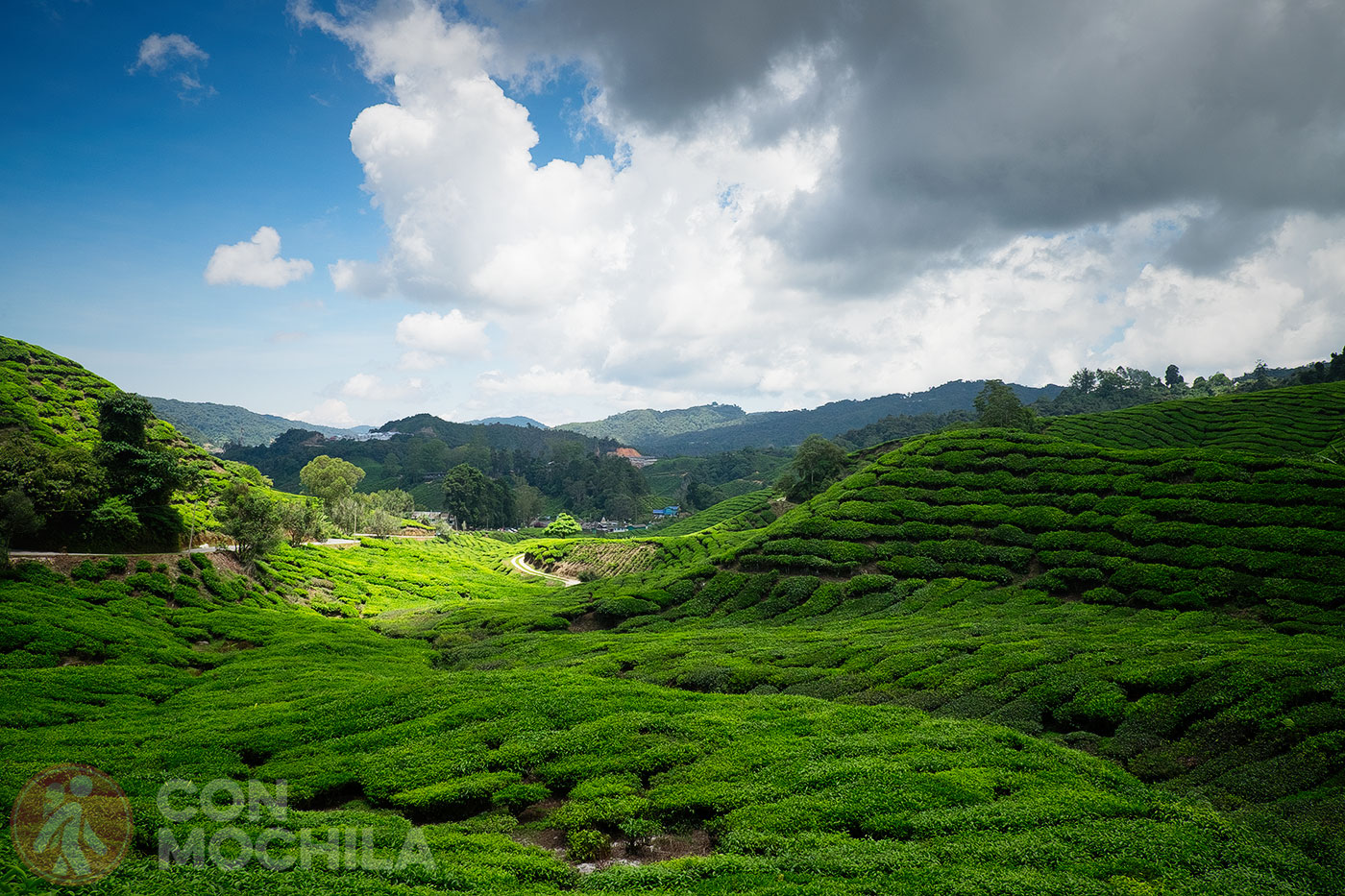
After passing through the workers’ village, which even had a Hindu temple, we arrived at the factory, situated on a hill from which we had the best views of the plantations.
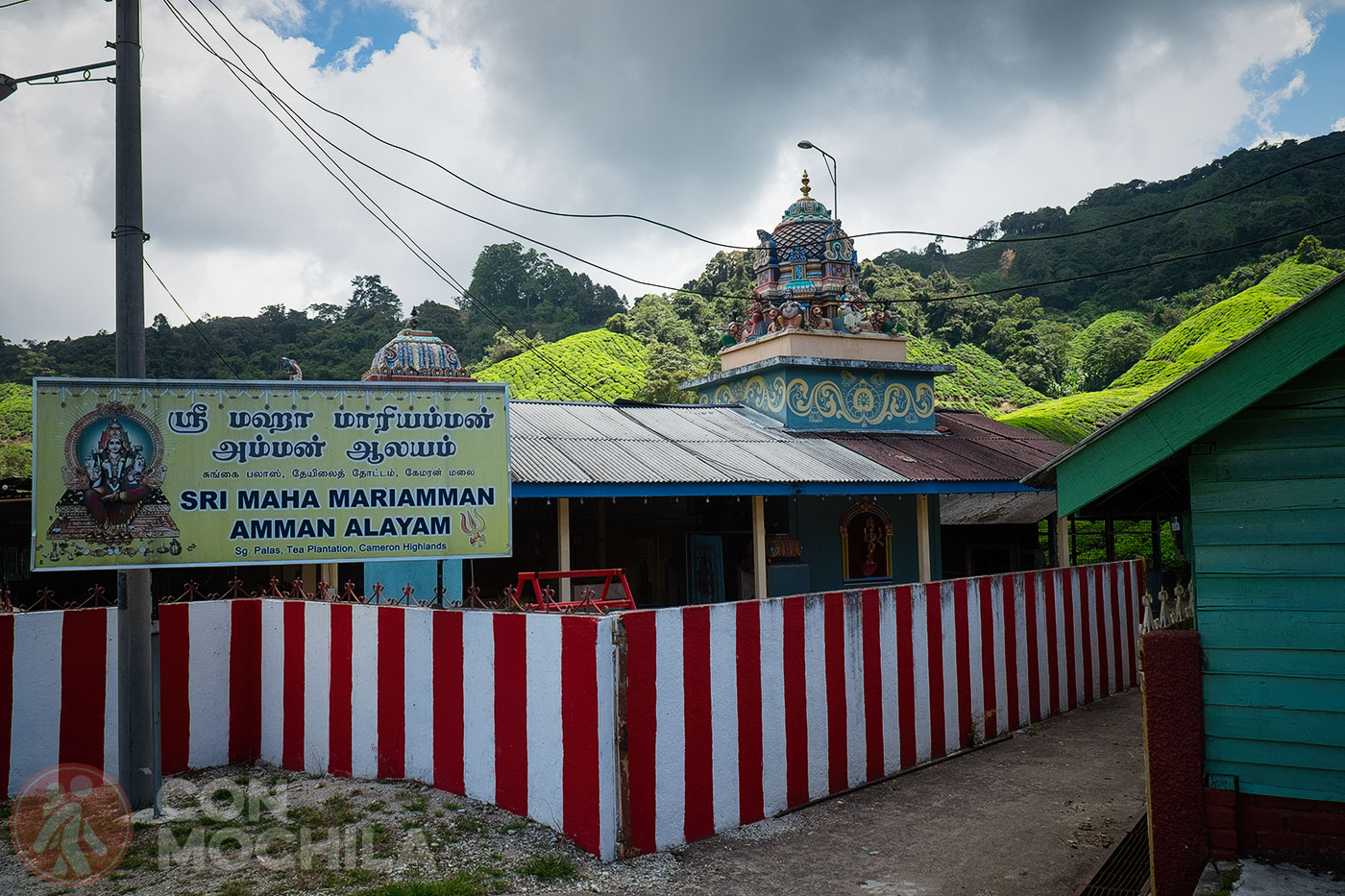
In the building, decorated with murals that describe the company, there is a bar where you can order and try tea in one of its infinite aromatic variations and you can also have some food or a sweet alongside it.
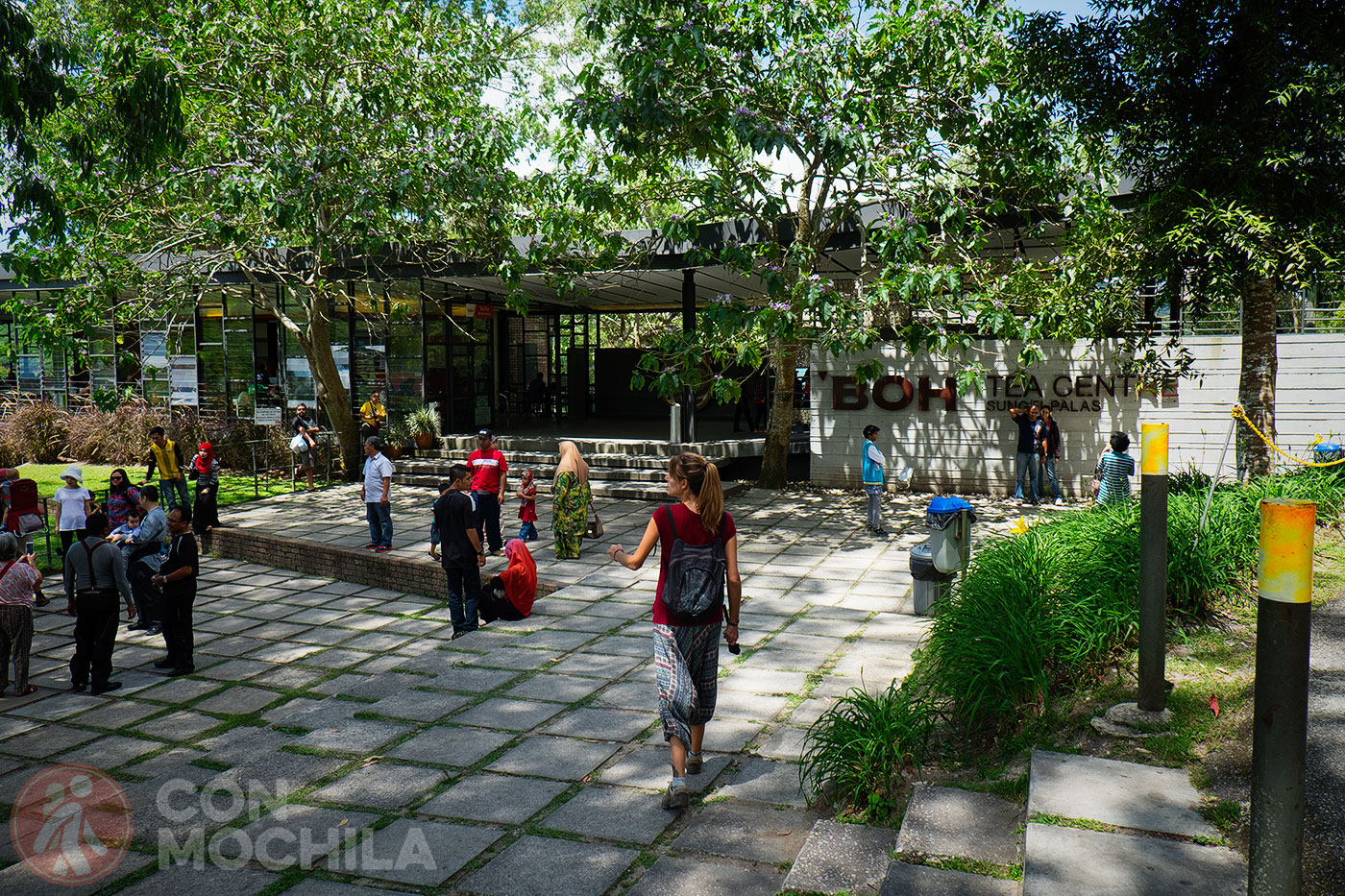
You can also enjoy lunch on the terrace, which is outdoors and overlooking the tea plantations.
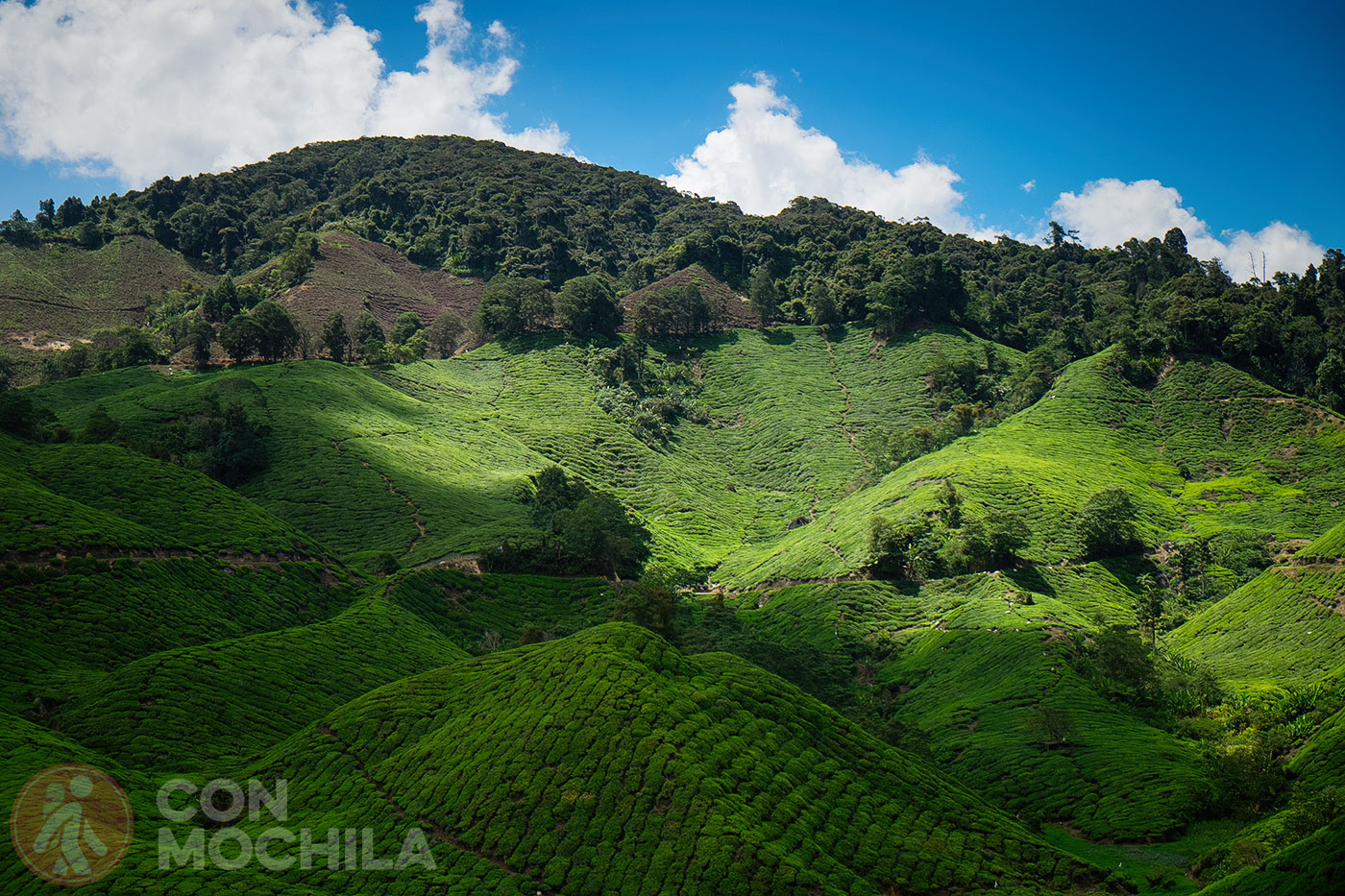
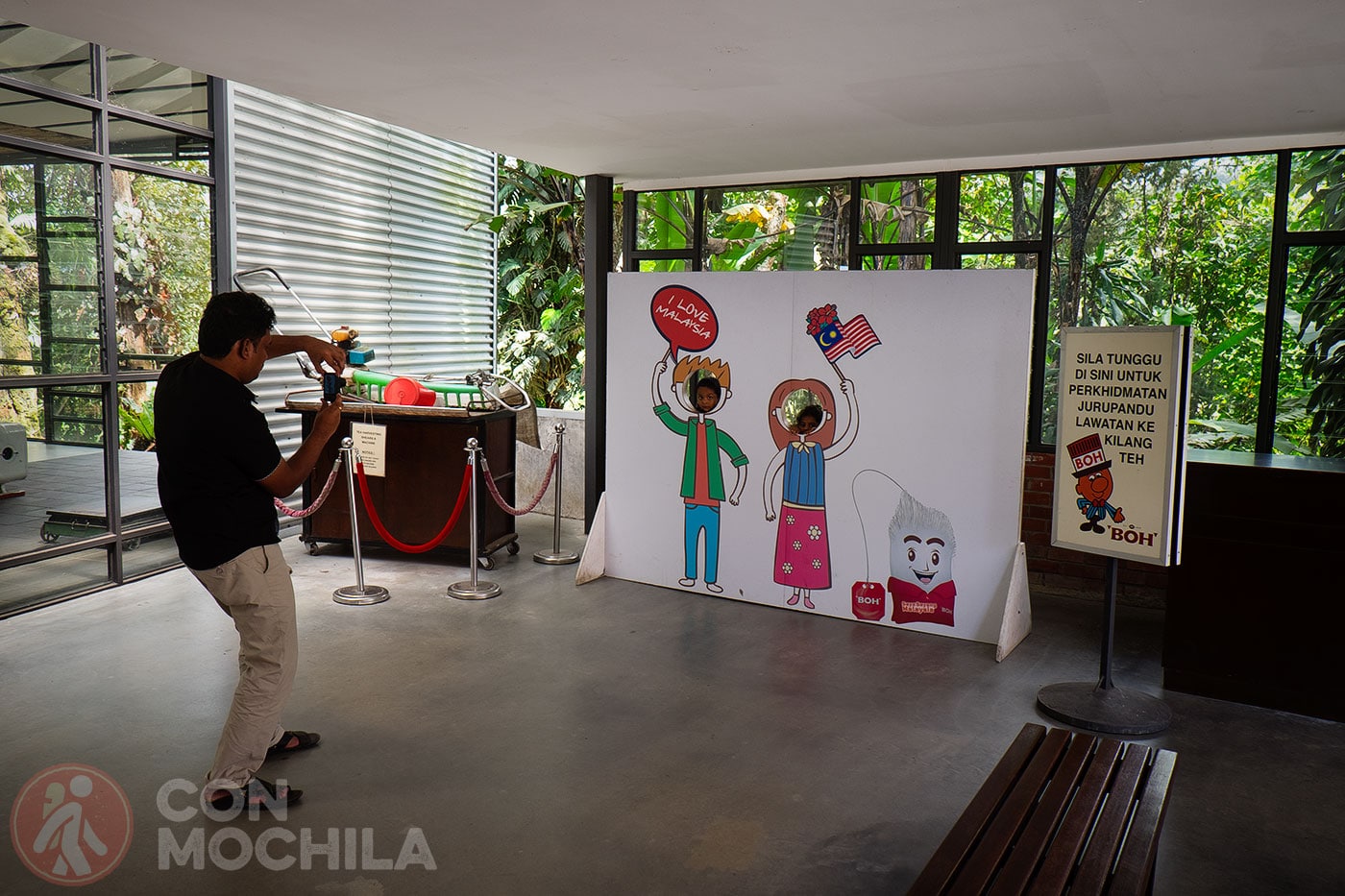
On the way back we decided to try hitchhiking to the main road, because the road was now uphill and we were already a bit tired. To our surprise the first car we waved at stopped and very kindly gave us a ride.
It was a pity that we didn’t go with them to Tanah Rata, thinking that the bus would pass quite frequently. If you are going to do the same, we warn you that the bus can take up to 3 hours, no more, no less, which was the time we waited sitting at the bus stop.
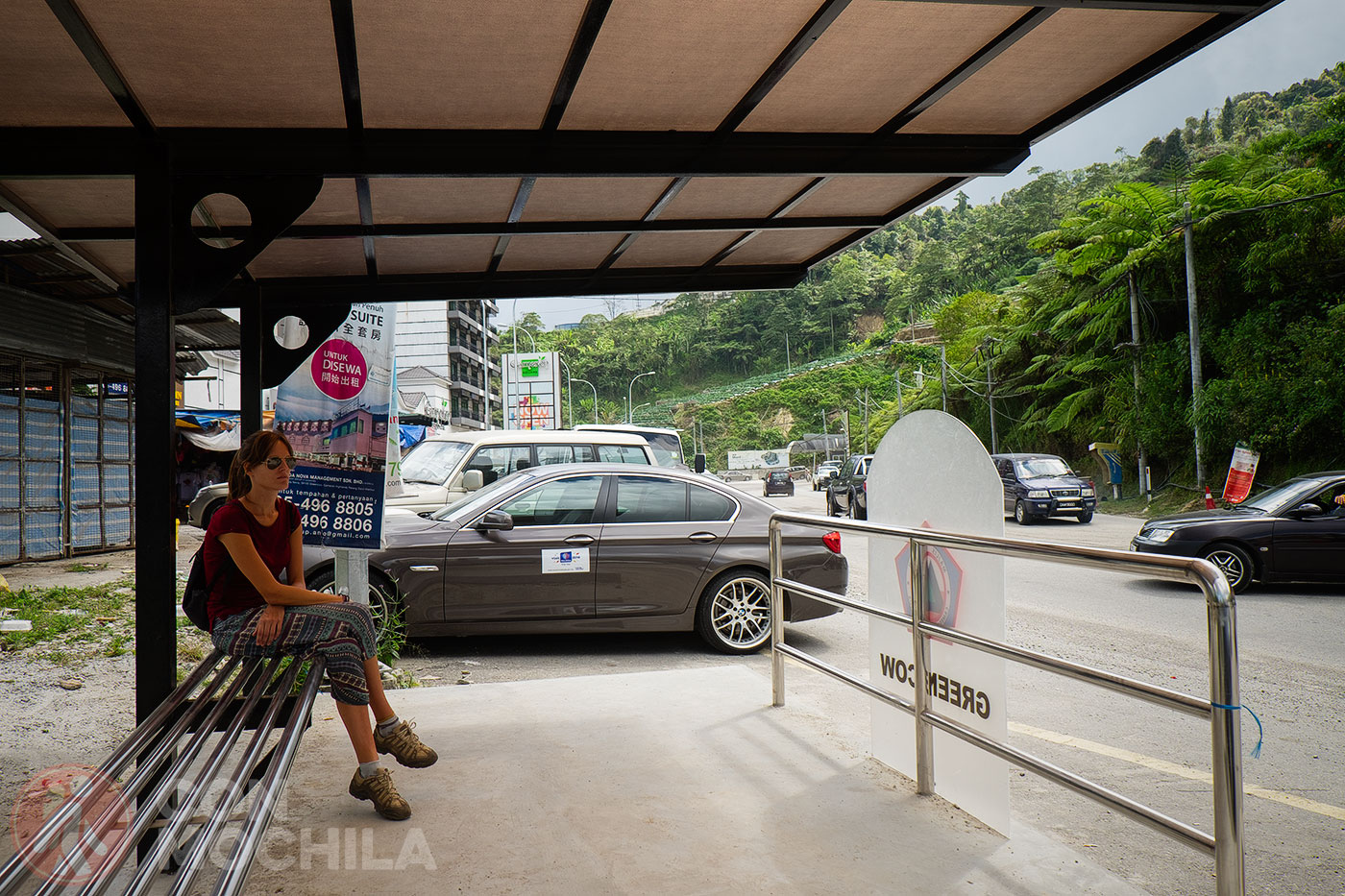
So, considering the friendliness of Malaysians, I think hitchhiking is a much better option if you don’t want to pay for a taxi.
In addition to hiking and tea plantations, in Cameron Highlands you can visit strawberry plantations, butterfly farms or go out in search of the Rafflesia, the largest flower in the world.
We’ll leave you with some of them so you can choose the ones that best suit you. Some of them leave from Kuala Lumpur, in case you want to make the excursion in one day from the country’s capital:
Depending on the number of visitors, or people, the price varies.
If you want to come here and spend the night, there are buses from various areas of Malaysia. Here are the most popular ones: